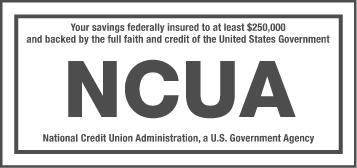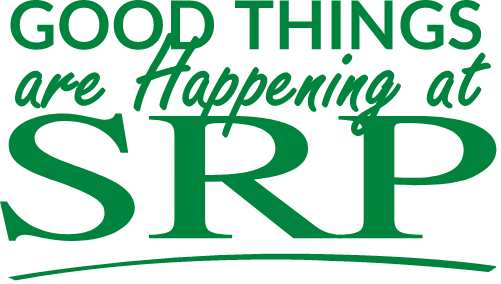
Buying vs. renting a home: Which is right for your wallet and lifestyle?
posted on
November 15, 2025
For generations, home ownership was considered an essential component of the American dream. However, in recent years, financially savvy people are questioning whether it’s economically rational to rent, buy a starter home or to wait and buy their dream house.
The housing market tends to shift a little each year, which changes the factors regarding housing choices. There are arguments both for buying and for renting, depending on your individual circumstances. To help you evaluate your own situation, consider these five important questions as you make the buy-or-rent decision.
-
How long do you plan to stay where you are?
Your intended length of stay has a huge impact on whether it makes more sense to rent or buy. There are many costs associated with the process of buying a home outside of the cost to purchase it–brokers’ and appraisal fees, title insurance, mortgage origination fees, and closing costs. The longer you remain in a house, the more time you have to spread out the costs. Selling the home within a few years may not offset the fees due to there not being enough appreciation.
-
Are you throwing money away on rent?
The primary argument in favor of purchasing a home is that you build equity in a valuable asset that can boost your long-term net worth. In contrast to this, paying rent each month seems like spending rather than saving. Rent may actually be less costly after factoring in all of the expenses associated with ownership.
- Property taxes
- Insurance
- Maintenance (it’s recommended to budget at least 1% of the value of your home each year to cover routine maintenance)
- Unforeseen expenses such as replacing a heating and cooling system or roof
Focusing solely on the monthly mortgage payment versus monthly rent may be overlooking additional costs of ownership.
-
What tax savings can I expect with home ownership?
Traditionally, the costs of homeownership have been offset by tax savings generated by the mortgage interest deduction. Recent changes to the tax laws have lowered the cap on the amount of mortgage interest that can be deducted. Interest paid on home equity loans or lines of credit is still deductible provided that the money is used for improvement to the home. Before you make the decision to purchase, we recommend doing your homework on how current tax laws will affect you by reaching out to a certified tax professional.
-
Do house prices always go up?
The real estate collapse in 2007 showed us that home prices can suffer major declines. Before buying a home, consider how your finances would be affected if your home’s value increased slowly or not at all. Understand that buying a house with the intent of it serving as an investment can be risky. Do your research. Though houses do generally go up in value, they don’t always. It can help to think of your home as a place to live not just an investment.
-
Which option will have a greater impact on my overall wealth?
Make an accurate comparison between the financial impact of renting and buying by factoring in the complete costs of homeownership–not just mortgage versus rent payments–as well as how owning would affect your taxes. A rent vs. buy comparison can be done using the price-to-rent ratio, which is calculated by dividing the home value by the annual rent amount. If this number is less than 20, buying may be a better option for you. Conversely, if it is greater than 20, renting might be best. You can find online rent vs. buy calculators that let you plug in your own numbers to see the difference that buying or renting has on your long-term finances.
There are benefits and drawbacks to each option. Both are major financial and lifestyle decisions and there isn’t a right answer for everyone. Before signing a mortgage or lease, weigh the benefits and drawbacks of each choice.
Benefits of owning a home
Security and freedom are two reasons to purchase a home of your own. When you are the mortgage holder, you have the right to make changes to the property. There are financial benefits to home ownership as well. Most homes can increase in value over time, which means that your investment appreciates.
In the first few years of making your mortgage payment, you’ll pay interest charges, which may be tax deductible. The longer you live in the home, the more principal you will be to pay off. As the balance of your loan declines, the equity in the home climbs. Owning a home also benefits your credit. Lenders perceive you as a good credit risk because your house can serve as security against future loans.
Drawbacks of owning a home
Buying a house is one of the largest investments many people will make in their lifetime. Along with the cost of the home, you are also responsible for the monthly payment of principal, interest, taxes, and insurance (what is referred to as “PITI”). It takes quite a bit of pre-purchase cash before you even step foot in the door. Because of the upfront expenses and monthly outlay, homeownership is not for everyone.
Benefits of renting
A sense of freedom is also associated with renting, but in a different sense. With a renting scenario, the only commitment you have is the security deposit, first and last month’s rent, and monthly rent. The landlord is responsible for most of the property’s upkeep, which greatly reduces expenses.
Drawbacks of renting
An absence of equity is the primary problem with renting a property versus owning it. The money you pay each month builds the owner’s (aka “landlord”) net worth instead of yours. Most rental properties have rules you have to follow and the agreement you sign binds you to any restrictions, such as no pets or a specific number of people who are allowed to live in the home.
Attitudes have shifted in terms of homeownership and the best advice we can give you is to assess your financial circumstances and lifestyle needs to decide if renting or buying is for you.
This article is for informational purposes only and is not intended to provide tax, legal, or accounting advice. You should consult your own tax, legal, and accounting advisors for advice. All loans subject to approval. Actual rate and terms may vary depending on individual’s credit history and other factors. Membership required. SRP is federally insured by NCUA. Equal Housing Lender. NMLS ID #612441.
Article Credit: BALANCE







